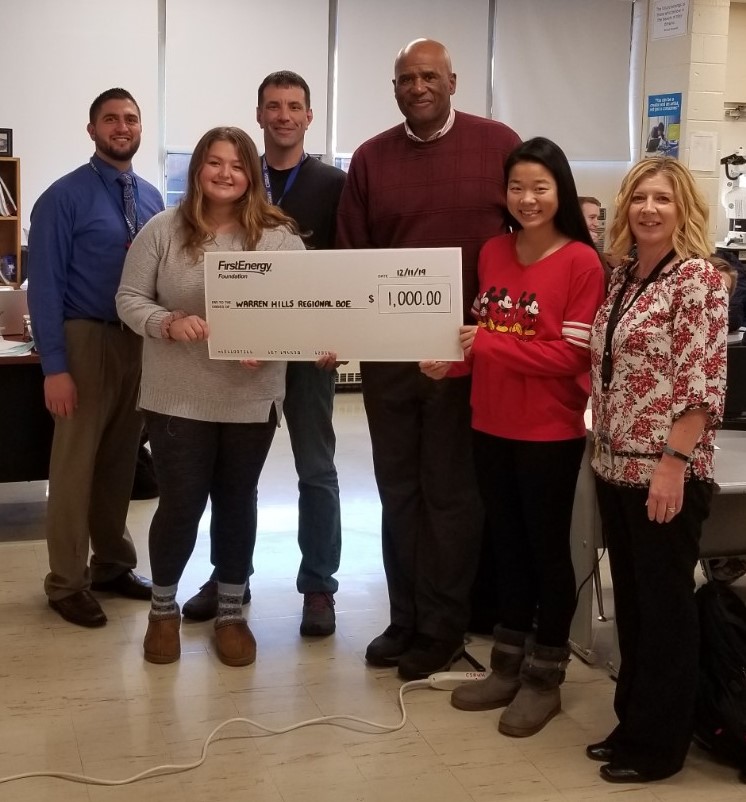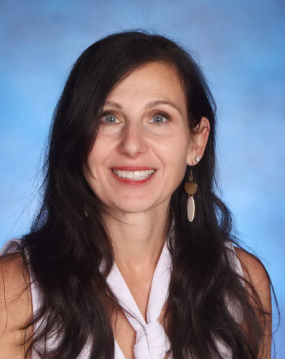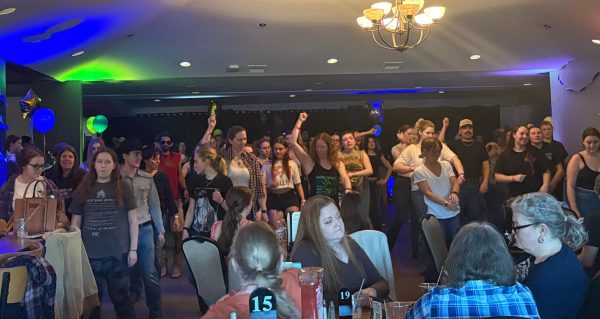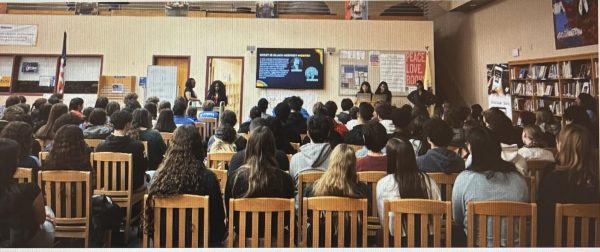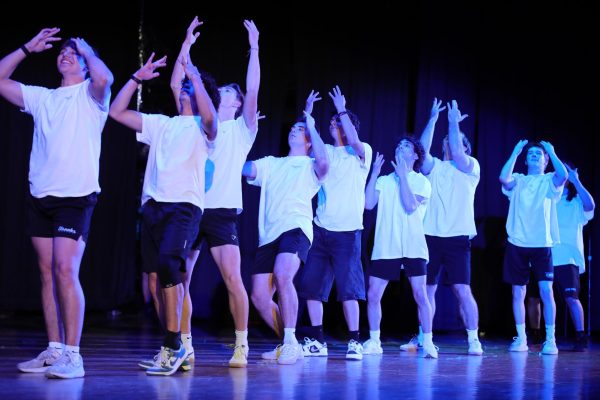CS@WH Students Jumpstart Technology Lending Library with First Energy Grant
There is a ton of amazing tech out there to help introduce young kids to coding in a fun, yet challenging way. However, teachers’ first challenge is often obtaining that technology for their students, because it can be quite costly, especially to purchase for an entire classroom. Additionally, many elementary school teachers are unfamiliar with computer science and how to teach it to their students.
Two Computer Science students, seniors Nicole Kilhullen and Joyce Lin, are helping to get teachers the tools they need, and even providing curriculum along with them, through a technology lending library they created as a project for their Advanced Topics in Computer Science class.
Their teacher, Mr. Daryl Detrick, said he had been sitting on this concept for a few years after he heard about a similar program at a school in Nebraska through the Computer Science Teachers Association.
“The idea came about because Mr. Detrick stares at all the robots on his shelf all year, except the one day we use it, so he decided that he wanted to do something with them for the rest of the year,” said Lin. “Last year Emma Pinto did a lending library learning module, but didn’t have time to implement it. This year, because we got the grant, we started the program.”
Although the idea was originally Mr. Detrick’s, these two were perfect for the job and have made the project their own.
“He approached us because we’ve worked with things that are similar to this before. We’re involved with Girls Coding with Girls, and we do work with the elementary school students,” said Kilhullen. “He told us he’d applied for the grant, and we took it up as a learning module and we added a lot of our ideas to it.”
Lin and Kilhullen worked together to create a website where teachers looking to borrow the technology can fill out a request form with the materials and the time period that they want.
Right now, the library contains four different types of technology: Micro Bits, Micro Maqueens, Spheros, and Finch robots.
“Micro Bits are microcomputers. They’re little squares that plug into the computer. We use drag and drop online software. They have LEDs and a bunch of cool stuff.” Kilhullen said. “Those pair with the Micro Maqueens, which are little robots that have wheels; they can move, they light up, they make noise, and kids love them. With the Maqueen, you can see your code actually making stuff move, and it’s really cool.”
“Spheros are spherical robots. They’re polycarbonate, so they don’t break that easily, so the kids, especially the younger ones, really enjoy playing with them,” Lin said. “The Finch robot is [a tethered robot] coded using Scratch.”
Lin and Kilhullen went above and beyond with the project, even creating lesson plans for teachers to implement with each different material.
“We wanted to have resources for the teachers. Online, on the Micro Bit website, they do have projects and tutorials,” Kilhullen said, but in order to give those materials to teachers, we compiled them on the website, and then we created lesson plans.”
Because the products are so expensive, the grant money was used to buy more to complete classroom sets and increase availability.
“What we had already, we bought more of them,” said Kilhullen, “because with the classroom sets, there are 12-15 per set; it’s hard to get more than one school having those devices at one time, and we do get multiple schools requesting the same device.”
The library is open to any elementary schools and community groups in the area. Kilhullen said they currently have teachers signed up from four of the local elementary schools.
The state of New Jersey recently created a new Computer Science standard, so getting this program off the ground came at just the right time.
“They have to start getting involved in implementing these new procedures, and the materials are expensive,” said Kilhullen. “This was their saving grace because you’re able to easily access materials like this.”
“The idea of the Warren Hills Computer Science Lending Library is for us to share our resources and our students’ passions to help inspire elementary school students,” said Mr. Detrick. (Photo Courtesy of Daryl Detrick)

